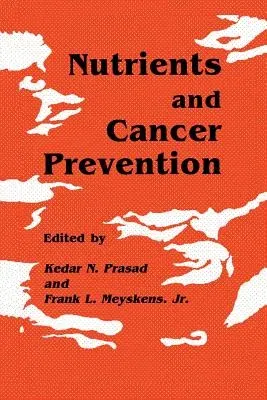Kedar N Prasad
(Author)Nutrients and Cancer Prevention (Softcover Reprint of the Original 1st 1990)Paperback - Softcover Reprint of the Original 1st 1990, 4 October 2011

Qty
1
Turbo
Ships in 2 - 3 days
In Stock
Free Delivery
Cash on Delivery
15 Days
Free Returns
Secure Checkout
Part of Series
Experimental Biology and Medicine
Print Length
348 pages
Language
English
Publisher
Humana
Date Published
4 Oct 2011
ISBN-10
1461288568
ISBN-13
9781461288565
Description
Product Details
Book Edition:
Softcover Reprint of the Original 1st 1990
Book Format:
Paperback
Country of Origin:
NL
Date Published:
4 October 2011
Dimensions:
22.86 x
15.24 x
1.93 cm
ISBN-10:
1461288568
ISBN-13:
9781461288565
Language:
English
Location:
Totowa, NJ
Pages:
348
Publisher:
Weight:
489.88 gm

